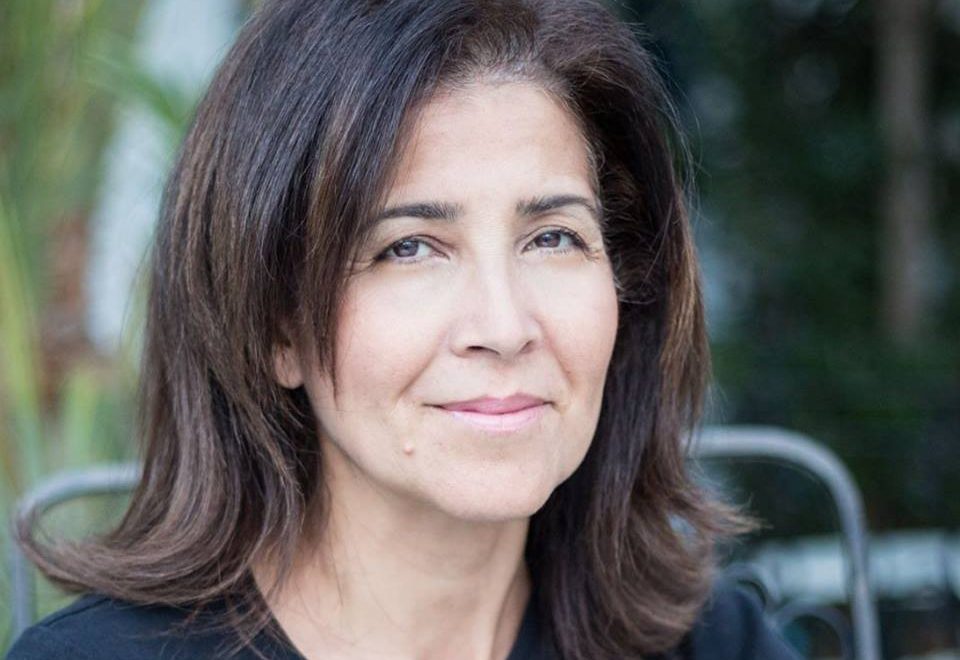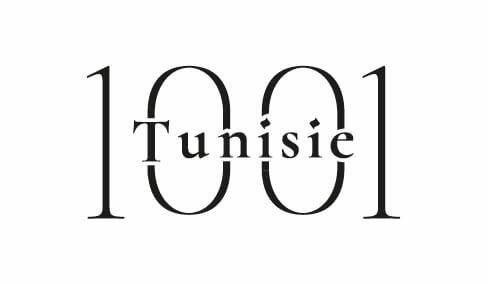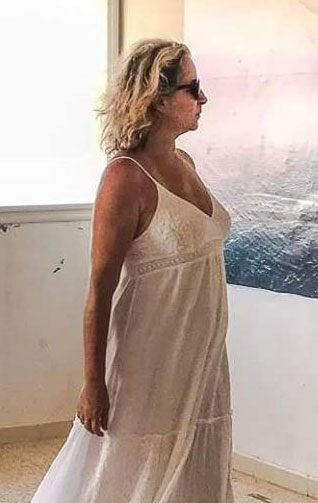
From the time she was recipient of the 2010 prize of the house of creation in Marseille, Ben Boubaker Barra has come a long way, such a long way. The sweet little girl graceful and gait, always changing in the world of handmade “haik” weaving with whom she has a close relationship.

Between an international exhibition and another, the designer prepares her 2017 collection. A collection awaited by loyal customers and carried on a casual lifestyle, authentic and elegant. A collection made for women who like the movement of a fabric when it accompanies their actions, moods, ceremonies, …
When I ask her if Barra collection will always be “haik,” she smiled, seeming to say, what else? Because between the haik and Baraa, it is primarily a story of freedom: “Light, suggestive, elegant it transmits and allows freedom; a precious value nowadays, especially for women, “she said.
 Since its association with Kenza Ben Ghachem Toree, a former of Alaia house that opened a nice shop on the road to Marsa, Barra exhibits regularly in Tunisia and continues to travel the country in search of old weaving techniques, she is inspired and promotes an ancestral knowledge and tries to involve young people, heirs of a heritage with which they reconcile difficult.
Since its association with Kenza Ben Ghachem Toree, a former of Alaia house that opened a nice shop on the road to Marsa, Barra exhibits regularly in Tunisia and continues to travel the country in search of old weaving techniques, she is inspired and promotes an ancestral knowledge and tries to involve young people, heirs of a heritage with which they reconcile difficult.

Born in Kélibia, Baraa began with change in the language field before finding another means of expression; that of creating atmospheres and clothing.
Winner of the first edition of the Euro-Mediterranean House of Fashion in 2010, she worked alongside major fashion in France with Jean Jacques Picard, Christophe Le Maire, Jocelyne Imbert, houses Kenzo, YSL, Dior, Chanel. She has exhibited at the Palais Royal in Paris (in 2011) and the Fashion Museum in Marseille. The apotheosis is in 2011 when the prestigious Hermès orders Barra creations for its windows.

Recognizing the need to revitalize the handicraft industry for its high potential for job creation and for its positive impact on Tunisia and its image, Barra believes that everything is and remains: “We must begin by motivating artisans, train them, show them new techniques and show them a finished product and well exposed. It is an image that young people, especially weavers children must remember. “
From her meetings with artisans, Barra kept strong memories, but on the filed, the difficulty and the daily is much more painful: “It takes very little to young people who are motivated and have desire to invest in an underestimated domain . Through my travels throughout Tunisia looking for old weavers, I realized that they were very tired. Themselves did not necessarily want their children to the same path as them! “

At the time of leaving, Barra smiled dreamily. imagine It is with artisans in Tunis and Kairouan thinking, perforate, “moucharabier” embroidery, dye, cut, fit, her dresses, caftans, coats, scarves, tops, …
For now, Barra collection sells in Japan at the Life Gallery in Tokyo, Jiyugaok, Ginza. Its collections are also available in Rome, Milan, Turin, Geneva, Miami, San Francisco, Frankfurt … The brand is also available in France, Germany, Spain and Saudi Arabia.

 َAbonnez-vous
َAbonnez-vous

